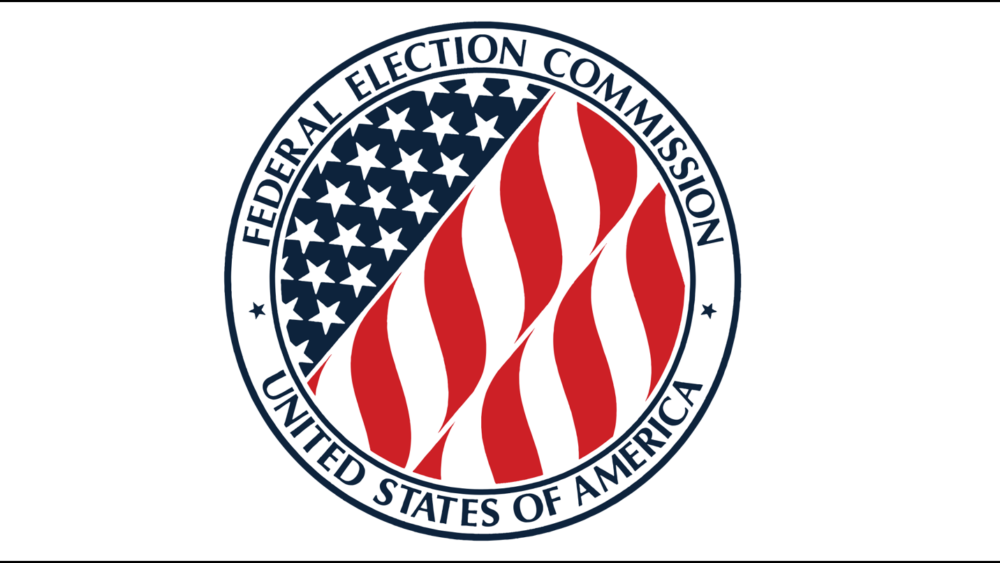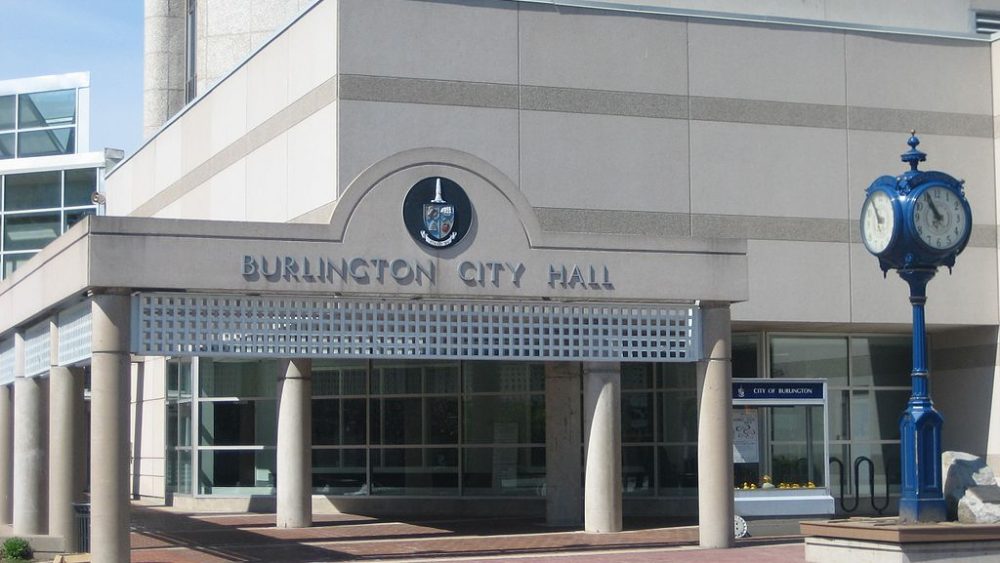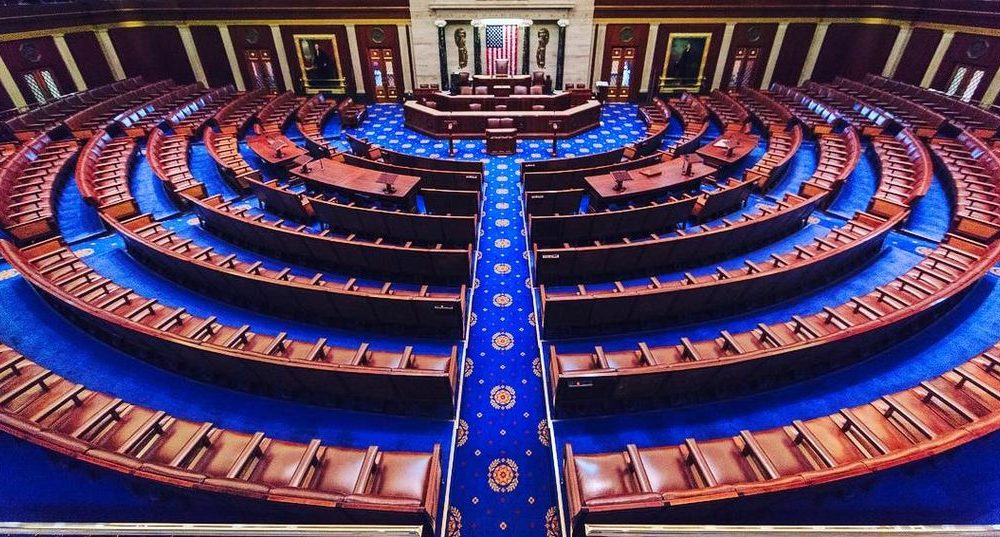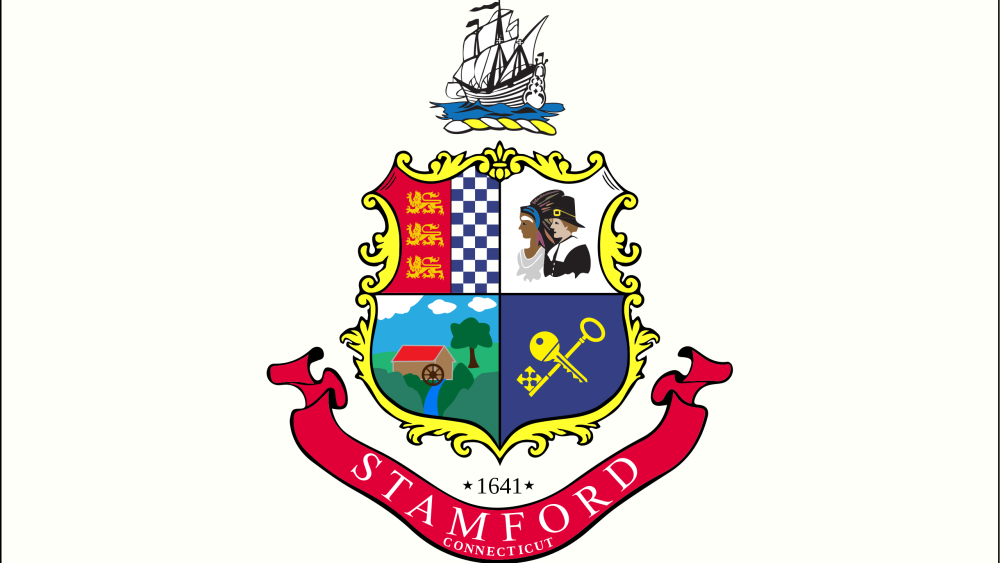January 8, 2024 •
Minimum Wage Required by Federal Contractors Increases for 2024
For 2024, the minimum wage required to be paid by US Federal Contractors under Executive Order 14026 increases to $17.20 an hour. Starting on January 30, 2022, all federal agencies were required to incorporate a $15 minimum wage in new […]
For 2024, the minimum wage required to be paid by US Federal Contractors under Executive Order 14026 increases to $17.20 an hour.
Starting on January 30, 2022, all federal agencies were required to incorporate a $15 minimum wage in new contract solicitations pursuant to an executive order signed by President Joseph R. Biden on April 27, 2021.
The order requires federal contractors to pay a minimum wage for employees working on or in connection with a federal government contract.
Beginning January 1, 2024, and for each subsequent year, tipped workers must now receive 100% of the wage received by non-tipped workers, currently $17.20 an hour, eliminating the difference between the type of workers.
This applies to tipped employees performing work on or in connection with contracts covered by Executive Order 14026.
Contractors and subcontractors must certify they meet this condition requiring the minimum wage.
This certification is a condition of payment to the contractors from the government.
The order does not apply to grants; contracts, contract-like instruments, or certain specific type of agreements with Indian Tribes.
If a state or municipality has a higher minimum wage, the Executive Order does not excuse noncompliance with the laws requiring the higher wage.
January 8, 2024 •
Elections Canada Publishes Limits on Political Contributions for 2024
Elections Canada has published the Canadian federal contribution limits for the 2024 calendar year. In 2024, individuals may contribute up to $1,725 to independent candidates, leadership candidates, registered parties, and to, in total, all of the registered associations, nomination contestants […]
Elections Canada has published the Canadian federal contribution limits for the 2024 calendar year.
In 2024, individuals may contribute up to $1,725 to independent candidates, leadership candidates, registered parties, and to, in total, all of the registered associations, nomination contestants and candidates of each registered party.
The limits also apply to any unpaid balance of loans made during a contribution period and the amount of any loan guarantees made during a contribution period.
The limits increase annually by $25 on January 1.
January 8, 2024 •
Contribution Limits Increased in British Columbia
Campaign contribution limits increased in British Columbia, Canada, for 2024 to $1,450.82 for contributions to registered political parties, including their candidates, nomination contestants and registered constituency associations. Additionally, individuals can also contribute up to $1,450.82 to independent candidates and leadership […]
Campaign contribution limits increased in British Columbia, Canada, for 2024 to $1,450.82 for contributions to registered political parties, including their candidates, nomination contestants and registered constituency associations.
Additionally, individuals can also contribute up to $1,450.82 to independent candidates and leadership contestants, if a leadership contest is called in 2024.
The previous limit from 2023 was $1,401.40.
Also increased to $410 is the limit of a fee paid to attend a leadership convention or other convention of a political party without counting toward the $1,450.82 contribution limit.
These contribution amounts are adjusted at the start of each calendar year.
December 22, 2023 •
FEC Modernizes Some Regulations Concerning Technology

On March 1, 2024, the Federal Election Commission new rules eliminating and updating references to outdated technologies in federal campaign finance regulations are expected to come into effect. The Final Rules and an Explanation and Justification for Technological Modernization, approved […]
On March 1, 2024, the Federal Election Commission new rules eliminating and updating references to outdated technologies in federal campaign finance regulations are expected to come into effect.
The Final Rules and an Explanation and Justification for Technological Modernization, approved by the FEC at their last meeting in December, attempts to modernize the commission’s regulations in light of technological advances in communications, recordkeeping, and financial transactions.
A significant part of the rulemaking is amending the definition of “public communication” and adopting a new term, “internet public communication,” to include communications over the internet that are “placed or promoted for a fee on another person’s website, digital device, application, or advertising platform. A public communication is promoted for a fee where a payment is made to a website, digital device, application, or advertising platform in order to increase the circulation, prominence, or availability of the communication on that website, digital device, application, or advertising platform.”
The intent is to ensure that political committees properly disclose their paid internet communications and help to prevent the circumvention of disclaimer requirements.
The FEC also concluded that many of the current regulations do not account for technological developments in how electronic documents are created, maintained, and submitted, particularly in the context of electronic transactions. The rules make regulatory revisions to facilitate electronic accounting, recordkeeping, reporting, and redesignation by political committees.
The Final Rules will be published in the Federal Register at a future date.
December 15, 2023 •
FEC Chairman for 2024 will be Sean J. Cooksey

On December 14, the Federal Election Commission (FEC) elected Sean J. Cooksey as its chairman for 2024. Cooksey replaces Dara Lindenbaum, who was appointed to the commission in 2022. The chairmanship is a rotating, one-year position. Ellen L. Weintraub was […]
On December 14, the Federal Election Commission (FEC) elected Sean J. Cooksey as its chairman for 2024.
Cooksey replaces Dara Lindenbaum, who was appointed to the commission in 2022.
The chairmanship is a rotating, one-year position.
Ellen L. Weintraub was elected as Vice Chair for the next year.
Additionally, at the same regularly held open meeting, the FEC unanimously approved 16 legislative recommendations be submitted for consideration to the U.S. Congress.
The recommendations concern subject matters such as establishing an itemization threshold for conduit contributions; increasing the rate of pay for FEC commissioners, staff director and general counsel; amending the foreign national prohibition to include substantial assistance; and amending the foreign national prohibition to include state and local ballot initiatives, referenda and recall elections.
December 12, 2023 •
Burlington, Ontario’s New Lobbyist Registry Bylaw Comes into effect January 1

Burlington, Ontario City Hall - The Fwanksta, Public domain
On January 1, the city of Burlington, Ontario’s new lobbyist registry bylaw comes into effect. The law effectively replaces the city’s Lobbyist Registration Policy, which passed on October 19, 2021, and came into effect January of 2022. As noted in […]
On January 1, the city of Burlington, Ontario’s new lobbyist registry bylaw comes into effect.
The law effectively replaces the city’s Lobbyist Registration Policy, which passed on October 19, 2021, and came into effect January of 2022.
As noted in the city of Burlington’s December 12 press release, the new a bylaw approved by City Council on July 11, 2023, includes:
- A move from volunteer to mandatory registration of applicable lobbying activities. All lobbyists must file a registration for each matter they intend to lobby prior to the lobbying, or within fifteen days of the initial communication;
- An expanded definition of lobbying communication that includes a formal meeting, email, letter, phone call or meaningful dialogue or exchange that materially advances a matter that is defined as lobbying, whether in a formal or an informal setting;
- The addition of the Burlington Leadership Team as a part of the lobbyist registry, along with the city council, as public office holders;
- The appointment of the city clerk as the Lobbyist Registrar to centralize and improve efficiency of registry administration;
- Limited enforcement of the bylaw: Where a person has contravened any of the provisions in the bylaw, they will be prohibited from lobbying activities until an information and education meeting with the Lobbyist Registrar is held. For a second offense, lobbying activities will be prohibited for 60 days.
While the city’s current registry is presently available online, new registration forms and webpage updates will be made to reflect the bylaw once it takes effect in January 2024.
“The new Lobbyist Registry bylaw will help ensure greater transparency in the local government decision-making process,” said Deputy Clerk Kevin Klingenberg in the press release.
December 11, 2023 •
Connecticut to Hold Special Election January 23

On January 23, 2024, a special election will be held to fill a vacant seat for the 115th Assembly District of the Connecticut House of Representatives. Gov. Ned Lamont formerly announced the special election on December 8 in order to […]
On January 23, 2024, a special election will be held to fill a vacant seat for the 115th Assembly District of the Connecticut House of Representatives.
Gov. Ned Lamont formerly announced the special election on December 8 in order to fill the seat vacated by Dorinda Borer.
Borer resigned on December 2 and was inaugurated as the newly elected mayor of West Haven on December 3.
December 1, 2023 •
Rep. George Santos Expelled from U.S. House of Representatives

U.S. House of Representatives Chamber - from their Public Domain
On December 1, over two-thirds of the United States House of Representatives voted to expel Rep. George Santos. The resolution to expel him from Congress passed 311 to 114, with 105 Republicans and all but two Democrats voting to remove […]
On December 1, over two-thirds of the United States House of Representatives voted to expel Rep. George Santos.
The resolution to expel him from Congress passed 311 to 114, with 105 Republicans and all but two Democrats voting to remove him.
On November 16, the Investigative Subcommittee of the House Committee on Ethics completed its investigation and unanimously concluded that there was substantial evidence that Santos:
- Knowingly caused his campaign committee to file false or incomplete reports with the Federal Election Commission;
- Used campaign funds for personal purposes;
- Engaged in fraudulent conduct in connection with RedStone Strategies LLC; and
- Engaged in knowing and willful violations of the Ethics in Government Act as it relates to his Financial Disclosure Statements filed with the House.
The committee then immediately referred these allegations to the Department of Justice, according to the Committee’s press release.
Santos is only the sixth member of the House to be removed by this type of vote in its history.
The last member removed was Rep. James A. Traficant in 2002.
A special election to fill the now-vacant seat is expected to be announced by New York Governor Kathy Hochul.
November 30, 2023 •
Kelowna Lobbyist Registry Now Live
A lobbyist registry for the city of Kelowna, British Columbia, is now live and operational. On September 11, the city of Kelowna City Council had established a Lobbyist Registry through a policy, Council Policy 390 Lobbyist Registry, to promote transparency […]
A lobbyist registry for the city of Kelowna, British Columbia, is now live and operational.
On September 11, the city of Kelowna City Council had established a Lobbyist Registry through a policy, Council Policy 390 Lobbyist Registry, to promote transparency by establishing registration and disclosure requirements for those seeking to influence a decision of council.
The council chose a policy rather than enacting a by-law and gave the city time to establish an electronic registry within the umbrella of the city of Kelowna’s official website.
The Policy applies to all lobbyists engaging in lobbying of a council member.
Lobbying is defined as communicating verbally or in writing, or to meet with an elected official for the purpose of influencing a decision of the council.
A lobbyist is defined as an individual, whether paid or voluntary, who lobbies an elected official regarding a matter within the council’s jurisdiction.
The lobbyist may represent individual interests or represent an organization, whether employed by that organization or on behalf of a different organization.
A lobbyist must register with the city within 5 days of lobbying a council member.
Each registration is considered active for six months, after which a new registration must be filed for lobbying activities.
The Lobbyist Registry allows the public to view and search the Registry online and is updated daily on regular business days with new registrations.
November 27, 2023 •
Canada Seeks Additional Input on Possible Foreign Influence Transparency Registry

Flag of Canada
On November 24, Public Safety Canada announced additional public consultations for a possible federal Foreign Influence Transparency Registry (FITR). Earlier this year, the Government of Canada had solicited the public on potential new methods for the government to protect Canada […]
On November 24, Public Safety Canada announced additional public consultations for a possible federal Foreign Influence Transparency Registry (FITR).
Earlier this year, the Government of Canada had solicited the public on potential new methods for the government to protect Canada against covert and deceptive foreign interference.
This new announcement is based on the feedback received through the previous consultations, which suggested a registry would not be a universal solution.
The new consultations will also focus on potential legislative amendments to the Canadian Security Intelligence Service Act, the Criminal Code, the Security of Information Act, and the Canada Evidence Act.
Anyone living in Canada, or Canadians living abroad, may share their input through a consultation webpage, which will be accepted until February 2, 2024.
November 15, 2023 •
Ontario By-election for Kitchener Centre to be held on November 30
On November 30, a by-election will be held for the seat in the Legislative Assembly of Ontario for the electoral district of Kitchener-Centre. On November 1, the Chief Electoral Officer of Ontario announced the election to fill the vacancy. MPP […]
On November 30, a by-election will be held for the seat in the Legislative Assembly of Ontario for the electoral district of Kitchener-Centre.
On November 1, the Chief Electoral Officer of Ontario announced the election to fill the vacancy.
MPP Laura Mae Monique Lindo, who was a member of the Legislative Assembly of Ontario since 2018, resigned on July 13 in order to work at the philosophy department at the University of Waterloo.
In addition to a blackout on political advertising from November 29 to November 30, the publication of election surveys that have not previously been made public is prohibited between 12:01 a.m. and 9:00 p.m. on November 30.
November 13, 2023 •
U.S. Supreme Court Announces a Code of Conduct for Itself
On November 13, the United States Supreme Court issued its first Code of Conduct to regulate its own ethical behavior. In a statement from the Court, it said, “The absence of a Code . . . has led in recent […]
On November 13, the United States Supreme Court issued its first Code of Conduct to regulate its own ethical behavior.
In a statement from the Court, it said, “The absence of a Code . . . has led in recent years to the misunderstanding that the Justices of this Court, unlike all other jurists in this country, regard themselves as unrestricted by any ethics rules. To dispel this misunderstanding, we are issuing this Code, which largely represents a codification of principles that we have long regarded as governing our conduct.”
The code is broken into five canons of behavior and includes commentary of the canons.
The canons address upholding the integrity and independence of the judiciary; avoiding impropriety and the appearance of impropriety in all activities; performing the duties of office fairly, impartially, and diligently; engaging in extrajudicial activities that are consistent with the obligations of the judicial office; and refraining from political activity.
The code is substantially derived from the Code of Conduct for U.S. Judges but adapted for the Court.
To assist the Justices in complying with these Canons, the Chief Justice has directed Court officers to undertake an examination of best practices of other federal and state courts.
The Office of Legal Counsel plans on providing annual training to the Justices, staff, and Court personnel regarding recurring ethics and financial disclosure issues.
In addition to the Code of Conduct, Justices are directed to comply with various federal laws and rules, including the current Judicial Conference Regulations on gifts; foreign gifts and decorations; outside earned income, honoraria, and employment; and financial disclosure.
November 8, 2023 •
Voters in New Haven, Connecticut Extend Mayor’s Term to Four Years

Photo by Smuconlaw
Voters in New Haven, Connecticut approved changes to the City Charter, which includes extending the terms of the mayor, the city clerk, and alders (members of the Board of Aldermen) from two to four years. Additionally, the revision allows the […]
Voters in New Haven, Connecticut approved changes to the City Charter, which includes extending the terms of the mayor, the city clerk, and alders (members of the Board of Aldermen) from two to four years.
Additionally, the revision allows the Board of Alderman to increase the salaries for alders, allows them more power to reform commissions and boards, and requires all city contracts of above $100,000 to be approved by them.
The increases in the length of terms takes effect in 2027, following two more election cycles.
November 8, 2023 •
Stamford, Connecticut Voters Reject Charter Revision

A charter revision for Stamford, Connecticut failed to pass in yesterday’s election. The ballot measure would have altered the appointment process for non-elected boards and commissions, changed allowing board members with expired terms to continue to hold seats and participate […]
A charter revision for Stamford, Connecticut failed to pass in yesterday’s election.
The ballot measure would have altered the appointment process for non-elected boards and commissions, changed allowing board members with expired terms to continue to hold seats and participate in voting, and allowed any member of the Board of Representatives to nominate a candidate to a board or commission in certain circumstances.
Additionally, the measure would change how outside legal counsel is retained by the Board and added residency requirements for certain non-elected city officials.
Both opponents and proponents of the charter revisions saw it as shifting power away from the mayor to the Board of Representatives.
State and Federal Communications, Inc. provides research and consulting services for government relations professionals on lobbying laws, procurement lobbying laws, political contribution laws in the United States and Canada. Learn more by visiting stateandfed.com.


